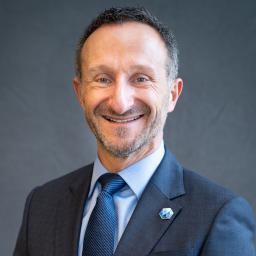From the CEO: Focus on Parents
While many people attribute the pervasiveness of Mother’s Day and Father’s Day each year to Hallmark’s marketing budget, I take a longer view and see these days as linked to the fifth commandment, “Honor your father and your mother.” Jewish tradition demands honor and respect to parents year-round; for two days this time of year, we are driven to pay them special attention. In the day school world, where parents are generally the ones who make the choice to enroll their children and who make any number of compromises and sacrifices as a result, we do well to consider ways we demonstrate appreciation for parents, and in turn, ways that they contribute to successful schools. Nurturing a positive relationship between school professionals and parents is perhaps one of the best “customer service” strategies that schools can implement. We must accordingly demonstrate our appreciation to parents. The best schools deliver on or even exceed what they promise in terms of the educational experience and also provide “value-added” in terms of what they deliver to parents. A good example of this is the whole college counseling process, perhaps one of the more anxiety-filled experiences for parents and students alike. When a school’s college counselor meets with a family, he or she is building on relationships established over time and broadening the conversation to include not just the academic experience, but also advising on what might be a good fit holistically. These conversations embody what it means for a school to “be there” for parents as well as students. For many schools, the recent Netflix series “Thirteen Reasons Why” has provided an opportunity to convey the same idea, that the school is there for students and families in a relevant way. I know this is an emotionally charged topic with varying responses. In light of the fact that we can safely assume nearly all students have either seen or are talking about the show, I highly recommend my friend Dina Rabhan’s blog post on this series and what she calls “parental cluelessness.” When you communicate with parents about timely topics, even sensitive ones, it demonstrates that you value them as critical partners in your school’s ability to fulfill its mission. How we communicate with parents—around inyanei d’yoma/day-to-day topics or in critical circumstances such as the recent spate of bomb threats—reflects the nature of our relationship with them. Open, frequent, and relevant communication is one of the greatest shows of respect and deep appreciation. Schools often engage with parents beyond the immediate context of their children. I consider this the “bonus” of choosing a day school education. Whether through parent learning opportunities after morning drop-off, lunch and learns on topics of relevance and interest to parents, and parent social events (which may or may not be fundraising in nature), schools foster a community for parents themselves. This community sustains its members at lifetime events such as births and deaths, and transmits values in support of the school’s broader mission. I learned recently about a school that employed telepresence technology for a student who was undergoing treatment for leukemia. Telepresence has been described as the human experience of being fully present at a live real-world location remote from one’s own physical location. For the student in question, this was a way of best approximating full participation in the classroom and of course for providing a measure of normalcy at a time when it was much valued. At Prizmah, with staff at any time in at least 13 locations, we are committed to using this kind of technology however possible. As a metaphor for school’s relationships with parents, telepresence offers an aspirational image to imagine how schools can keep parents fully present—and valued—in the day school experience. The “live real-world” location of a school extends beyond classrooms, science labs, and gyms to include a dynamic community where parents are critical members.



